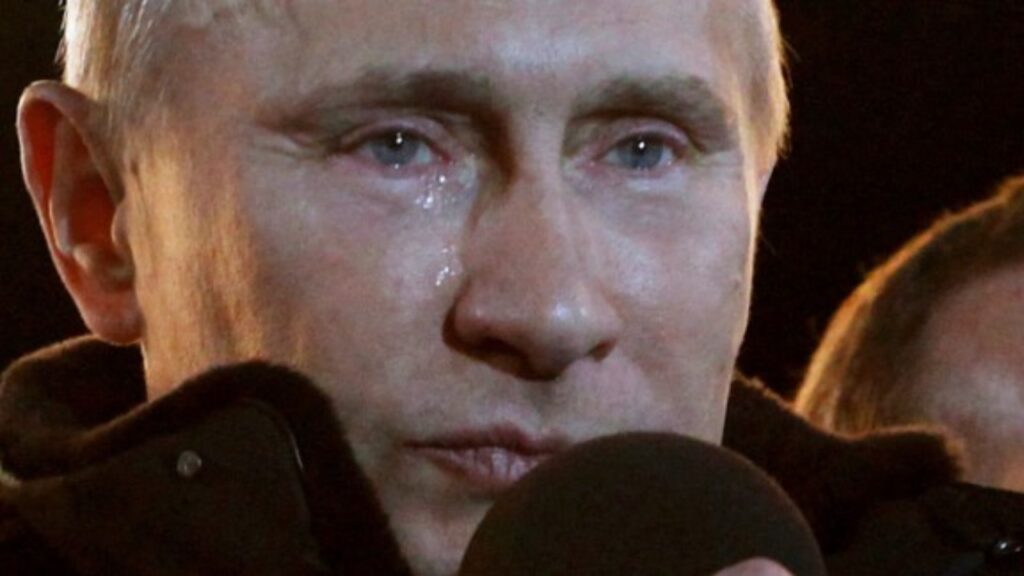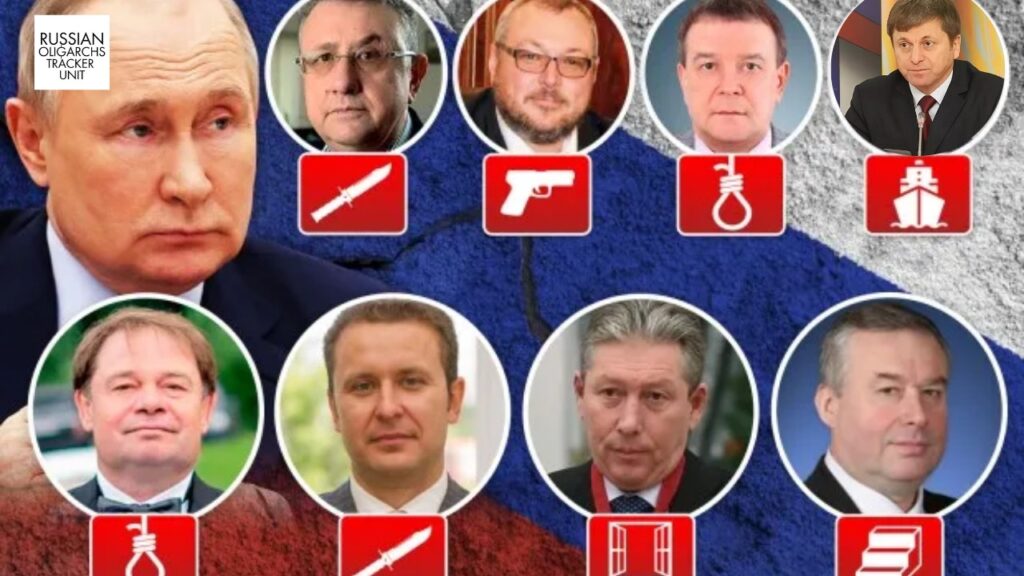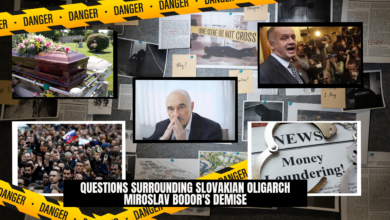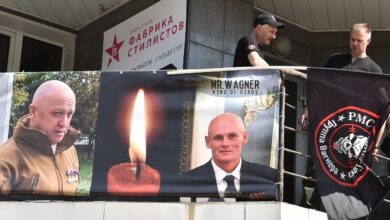Dima Nova Death: Russian Artist Who Criticised Vladimir Putin In His Songs Dies At 35
Dima Nova Death: Dima Nova, a renowned Russian pop artist and the creator of the electronic music ensemble Cream Soda, tragically passed away on Sunday, March 21, 2023. This heartbreaking incident occurred when he, along with his brother and three companions, fell through the frozen Volga River. At the time of his untimely demise, Dima Nova was 35 years of age.
Early life of Dima Nova
Dima Nova came into the world on April 4, 1988, in Moscow, Russia. His fascination with music began at a young age, leading him to master both the guitar and piano. He pursued his education at the Moscow State University of Culture and Arts, where he crossed paths with Ilya Gadaev, who would later become his collaborator in the music duo known as Cream Soda. Their musical journey commenced in 2012 when they ventured into electronic music production together, eventually releasing their debut album, “Love Me More,” in 2013. Disco, house, synth-pop, and indie rock were a few of the genres that heavily influenced their creative direction.
Career
Dima Nova enjoyed a prosperous career both as a musician and a producer. He was the mastermind behind the electronic music ensemble Cream Soda, boasting the release of four studio albums and engaging in collaborations with various artists. Additionally, he established the independent label “Cream Soda Records.”
Renowned for its infectious melodies, clever lyrics, and nostalgic undertones, his music garnered acclaim. Dima Nova was recognised for his magnetic personality, innovative artistic vision, and commitment to social causes. Leveraging his platform, he utilised his music to critique Putin and the conflict in Ukraine. Notably, his track “Aqua Disco” emerged as a rallying anthem for anti-war demonstrations. Dima Nova held a prominent and influential position within the Russian music landscape.
Tragic Loss and Musical Legacy: The Story of Svirgunov and Cream Soda

Two of Svirgunov’s companions were rescued from the icy conditions, but unfortunately, a third friend later succumbed while en route in an ambulance. The popular electronic group’s hit track, “Aqua Disco,” became a frequent rallying cry at anti-war demonstrations in Ukraine. Cream Soda confirmed Svirgunov’s passing through an Instagram post on Monday.
In 2012, Svirgunov, alongside Ilya Gadayev, co-founded Cream Soda, a band that has subsequently released four studio albums. The group has collaborated with acts such as Khleb and Loud, as well as artists including Feduk, Alyona Sviridova, Antokha MC, and Alexander Gudkov. In 2017, they released a song titled “Volga,” featuring lyrics about venturing “beneath the surface” and descending into depths. Their prominence grew in 2021 when Russian comedian Alexander Gudkov parodied President Vladimir Putin in a video using their music, following Putin’s alleged involvement in the construction of a $1.3 billion mansion referred to as “Putin’s Palace.”
Dima Nova Song criticizing Russian President Vladimir Putin
Critics of the Russian president drew attention to the mansion’s hookah lounge and a room that was supposedly referred to as an “aquatic disco.” In response to these comments, Cream Soda composed the track “Aqua Disco” as a form of retaliation.

The song’s lyrics are specifically aimed at Putin, expressing, “You’re inviting me to the movies and a couple of drinks. You’re inviting me to inhale shisha smoke, relax on the bedcovers, and watch the sunset from your opulent marble boudoir. You simply don’t grasp how outdated that is.”
Dima Nova and his band, Cream Soda, gained widespread recognition for their song “Aqua Disco,” which served as a prominent protest against Vladimir Putin. According to a report by Newsweek, the song criticised the alleged $1.3 billion mansion of the Russian President. The band seized upon the notion of the mansion’s primary room being described as an “aquatic disco” and used it as inspiration for their song.
How did Dima Nova death news come Out?
The untimely demise of Dmitry Svirgunov, widely recognized as Dima Nova, at the tender age of 35 left numerous individuals in disbelief. Reports indicate that the frontman of the Russian group Cream Soda lost his life in a tragic incident while attempting to traverse the frozen Volga River with his friends. The band shared the heartbreaking news of his passing on their Instagram account.
Reasons For his death
Dima Nova passed away on Sunday, March 21, 2023, after tragically falling through the ice while crossing the frozen Volga River with his brother and three friends. His band, Cream Soda, confirmed his untimely passing at the age of 35 on both their Instagram and VK accounts. The news of his death stirred a contentious debate among his fans and critics. Some raised suspicions of foul play or political motives behind the accident, while others extended their condolences and paid homage to his musical contributions.

Renowned for his anti-war and anti-Putin stance, Nova’s impactful songs, including “Aqua Disco,” served as anthems during protests against the war in Ukraine and the alleged $1.3 billion mansion linked to Putin. His passing leaves behind a profound impact on the music scene, prompting a reflection on his legacy and the messages he conveyed through his art.
Other mysterious Russian deaths or attacks surrounding Putin

Boris Nemtsov
In 2015, Boris Nemtsov, a prominent Russian opposition figure known for his strong criticism of the Putin administration, was fatally shot in an assault that took place on a bridge within sight of the Kremlin.
- He met his demise just a few days prior to his scheduled leadership of an uncommon public demonstration against Russia’s takeover of Ukraine’s Crimean area and its backing of separatist activities in eastern Ukraine’s Donbas region.
- The Kremlin disavowed any participation, while in 2017, a Russian court found five individuals guilty of Nemtsov’s murder in a trial that his family labeled as an attempt to conceal the truth.
- In the years that followed, it came to light that a government agent working with a group that carried out assassinations had been closely watching him in the months before his death.
Alexei Navalny
The leader of the opposition, Navalny, who is currently incarcerated for approximately three decades, was poisoned in August 2020 using a potent nerve agent known as Novichok, a product of Soviet Union’s research and development.
- The Kremlin claimed no responsibility, but later inquiries conducted by Bellingcat revealed that the individuals behind the assault were affiliated with Russia’s Federal Security Service (FSB) and that the decision to poison him had come from the highest levels of the Kremlin.
Alexander Litvinenko:
In 2006, Litvinenko, a former KGB agent turned whistleblower, passed away in the United Kingdom as a result of poisoning with a scarce and extremely radioactive substance known as polonium-210.
- Once more, Russia has refused any participation, yet both the United Kingdom and the European Court of Human Rights have reached the conclusion that Russia likely played a role. The UK investigation even went as far as suggesting that Putin “likely sanctioned” the assassination of Litvinenko.
- One of the indications suggesting the Kremlin’s participation is the observation that nearly all the global supply of polonium-210 originates from state-managed nuclear facilities in Russia, where nuclear authorities have emphasised strict oversight over access to this element.
Sergei Skripal:
In 2018, Skripal, a former Russian intelligence operative residing in the United Kingdom, along with his daughter, fell victim to an assault in Salisbury. They were targeted with a nerve agent that bore a resemblance to the substance employed in the attack against Navalny.
- Skripal and his daughter managed to survive, but a British citizen lost their life, and several others were harmed when they encountered a perfume container suspected to be linked to the incident.
- The United States, the United Kingdom, and several other countries have jointly determined that individuals affiliated with the Russian military intelligence agency were responsible for the poisonings. Furthermore, the United Kingdom has formally accused three members of this agency in connection with the incidents.
Yuri Shchekochikhin:
In July 2003, Russian investigative journalist and liberal lawmaker Shchekochikhin experienced a sudden illness and passed away. Doctors at a hospital associated with the Kremlin stated at the time that his cause of death was attributed to a severe allergic reaction.
- His family members have reported that Shchekochikhin endured a harrowing 12-day period characterized by excruciating pain, during which his skin progressively peeled off, his hair fell out, and his organs suffered successive failures.
- Medical professionals informed Shchekochikhin’s family that prosecutors were holding his medical records because they were a “medical secret” at the time they requested access. This was in relation to an investigation that would not be initiated until several years later.
- In the years leading up to his demise, Shchekochikhin had published investigative reports exposing a smuggling operation, money laundering activities, and a corruption scandal involving high-ranking FSB (Federal Security Service) agents.
- Additionally, he had been delving into the potential involvement of the FSB in the 1999 Moscow apartment bombings, an event that played a part in triggering the Second Chechen War.
Anna Politkovskaya
In October 2006, Anna Politkovskaya, a Russian journalist and advocate for human rights, was fatally shot in her residence located in Moscow.
- She had documented human rights abuses during the Second Chechen War and authored a book in 2004, asserting that Putin, via the FSB, was suppressing civil liberties to steer the nation toward a Soviet-style dictatorship before she passed away.
- In 2014, a Moscow court convicted five men for her murder, but the identity of the individual who ordered her assassination was never determined.
Multiple Russian oligarchs and executives also died :
According to a report from The New York Times, a number of prominent Russian oligarchs and high-ranking executives have met untimely deaths in perplexing circumstances, including suicides and accidents, since the commencement of Russia’s invasion of Ukraine.
- Ravil Maganov, who held the position of Chairman of the Board at Lukoil, a prominent Russian conglomerate, experienced a tragic and unexpected demise in September 2022. This unfortunate incident occurred when he fell from a hospital window in Moscow. The circumstances surrounding his death garnered significant attention and controversy in Russia and beyond.
- Russian media initially reported that Ravil Maganov had taken his own life, implying that it was a case of suicide. However, in response to these reports, Lukoil released an official statement following his passing. According to the company’s statement, Maganov did not succumb to suicide but rather passed away as a result of a severe illness.
The sudden and perplexing nature of Maganov’s death, along with the contrasting narratives presented by the media and Lukoil, added an extra layer of complexity to this tragic event. It raised questions and speculation within both the business community and the public, leaving many seeking further information and clarity about the circumstances surrounding the loss of a key figure in one of Russia’s largest private corporations.








